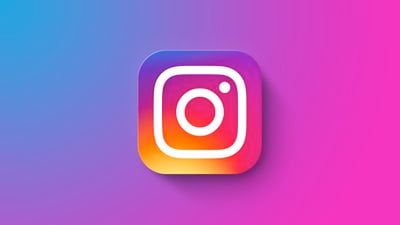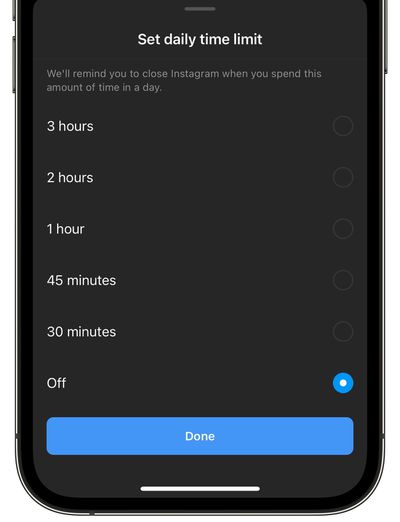Instagram has quietly removed the ability for its users to limit their daily usage of the app to less than 30 minutes, reports TechCrunch.

In 2018, Instagram introduced options in the app to set a daily time limit, with a reminder to be sent when that time limit is reached – useful for those who want to cut down on their social media usage. Originally, users were able to select a time limit as low as ten or even five minutes a day, but selecting such short durations is no longer possible.
Following the latest app update, the "Set daily time limit" menu card pops up and prompts users to choose how long that should be, with a new minimum of 30 minutes, while the radio button next to the maximum of three hours is pre-selected in the menu card, as if to nudge users to choose that limit.
The popup does say the user can keep their existing limit if they wish, but an additional popup on the activity page in the app says the 10-minute value is "no longer supported." Indeed, after the update, users will find the new limits available are now 30 minutes, 45 minutes, one hour, two hours, and three hours.

Neither Instagram nor parent company Meta (formerly Facebook) has commented on the quietly implemented change, which appears to run counter to Instagram's claim, made in 2018, that it wants to empower users to make intentional decisions about how much time they spend on the app.
The change arrives just a few months after Instagram introduced its "Take a Break" feature that lets users opt into receiving periodic reminders if they've been on the app for long stretches of time. As The Verge notes, when "Take a Break" was in testing, Instagram head Adam Mosseri said that "you know what's best for you when it comes to how you use the app."
The change follows disappointing quarterly earnings reported by Meta earlier this month, which saw the company slash its guidance for the first quarter of 2022 by $30 billion.
Meta partly blamed its weaker performance on steps taken by Apple to improve user privacy by making it harder for platforms and apps to track users across other apps and websites for ad targeting purposes, which Meta said will cost its business $10 billion this year.





















